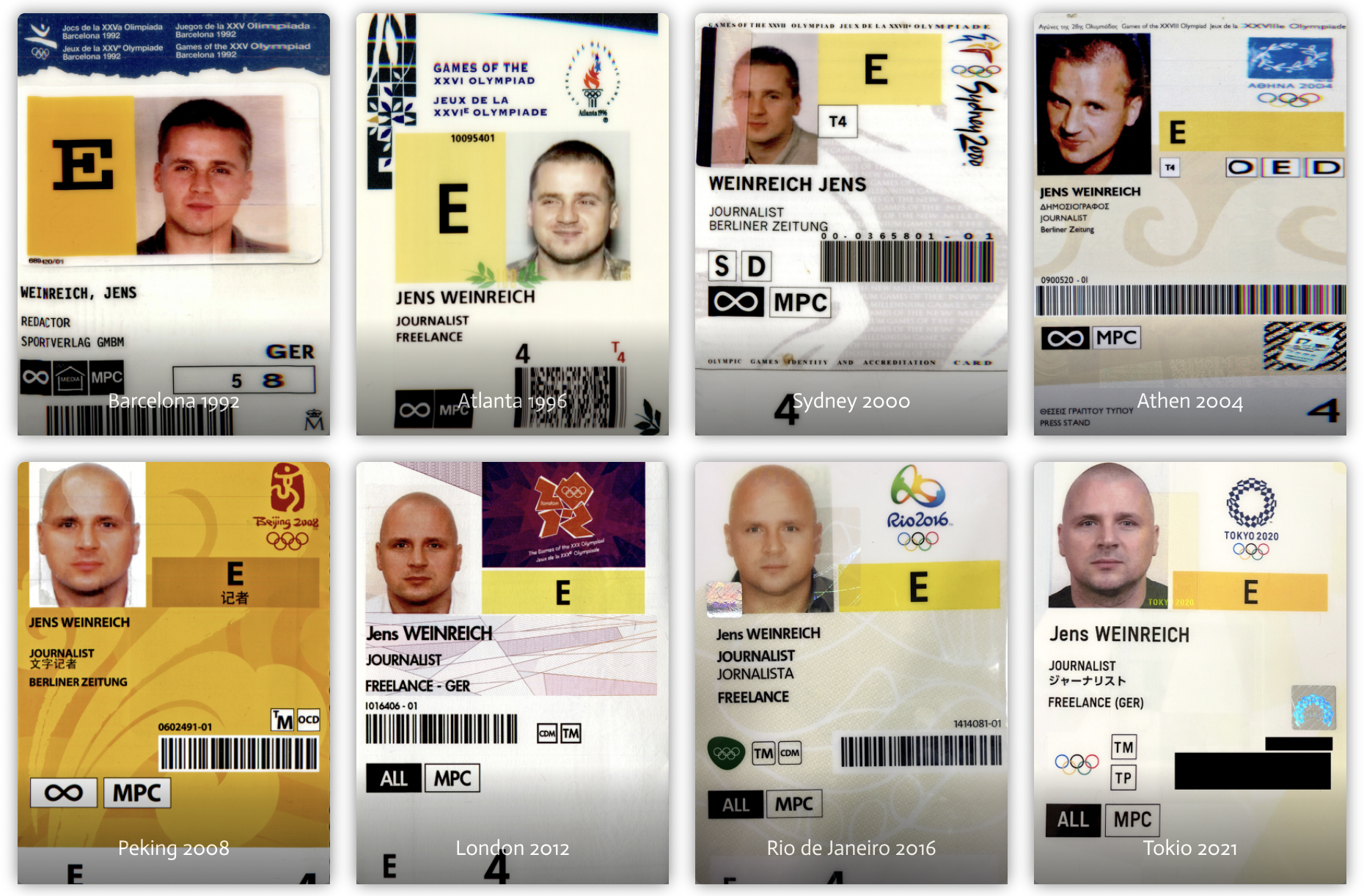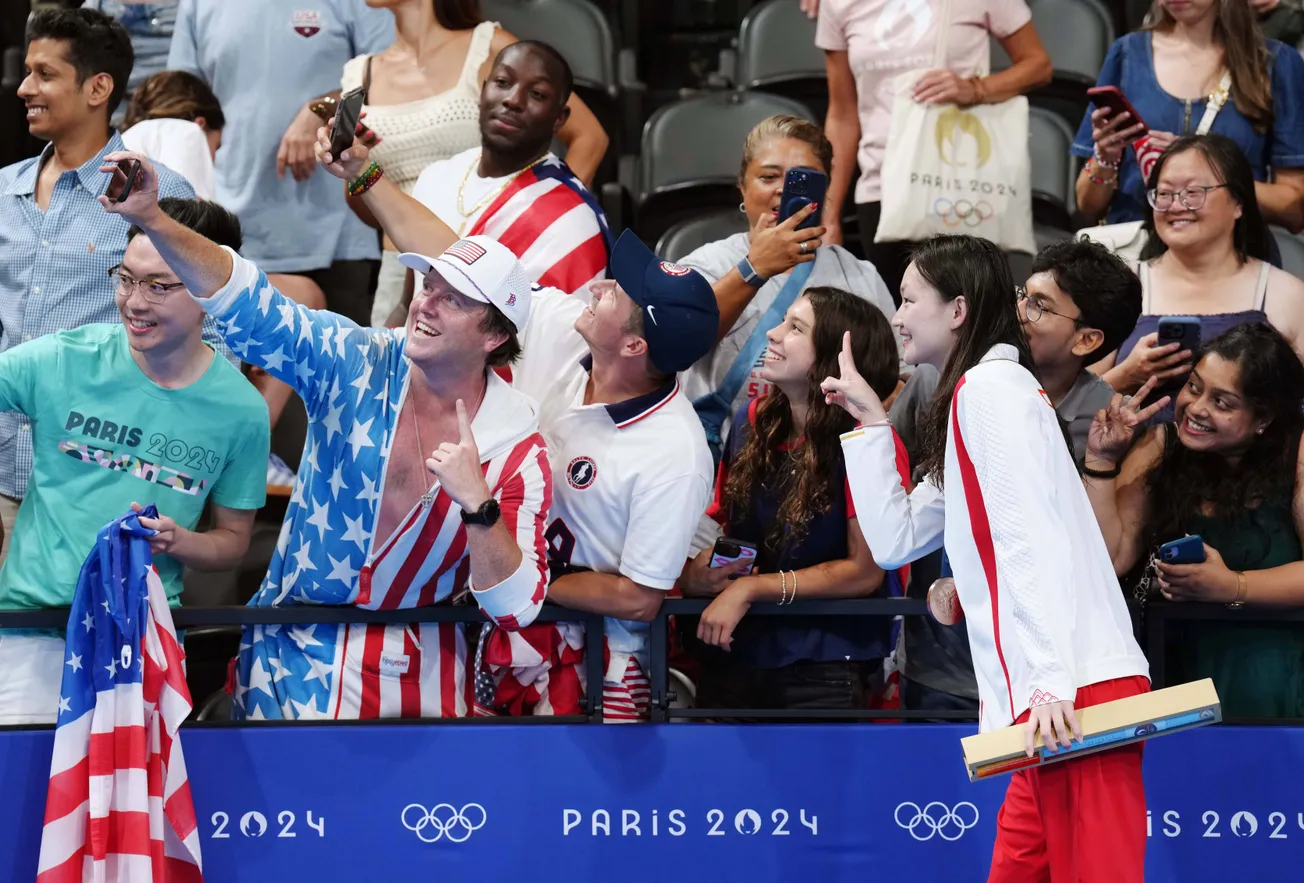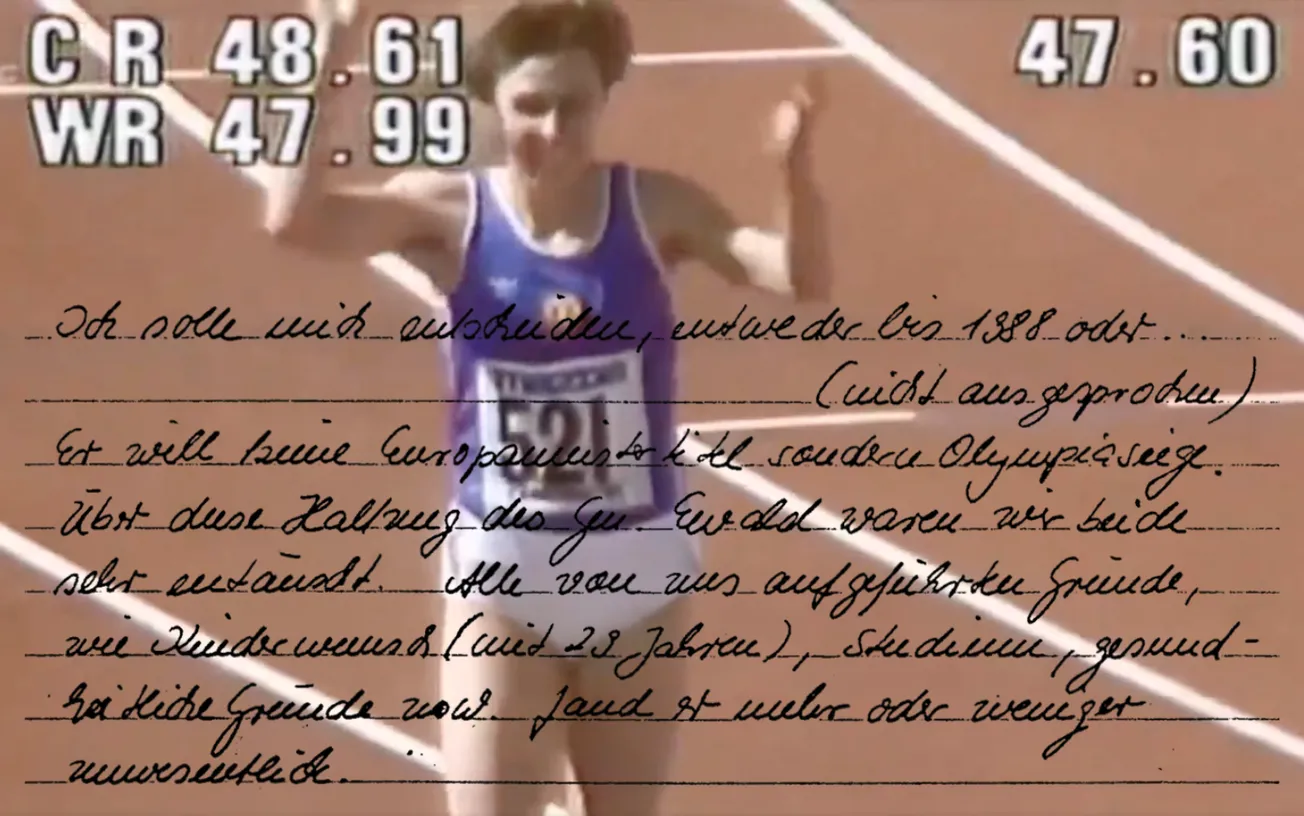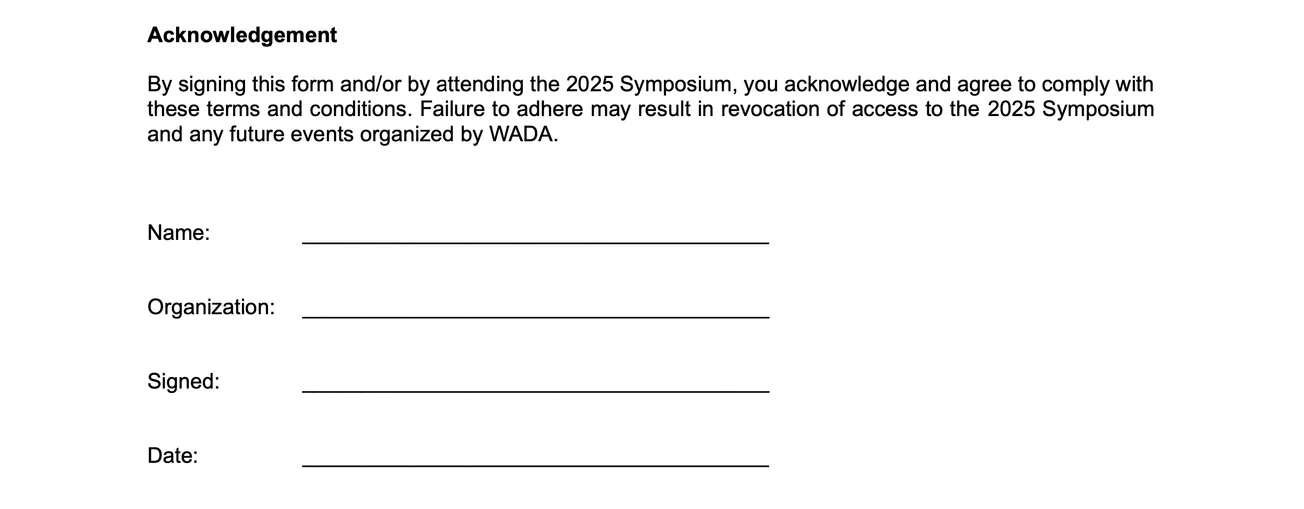NEUILLY-SUR-SEINE. One of the constants of the doping debate, at the Olympic Games and beyond, for many decades has been the reactions of sports reporters in the arenas. There are hardly any more absurd exaggerations. On Wednesday in the catacombs of La Défense Arena, a Chinese reporter wanted to know from the fabulous world record holder Pan Zhanle whether his Olympic victory over 100 meters freestyle, with a gigantic 1.08 seconds ahead of the Australian Kyle Chambers, was not the best answer to the vicious debates of recent weeks. Was this not proof of an excellent Chinese sports system? This was the message of the, well, questioner on behalf of the state or/and the almighty CCP.
You have to let such argumentative contortions sink in. To be fair, it should be acknowledged that such blunders and attempts to somehow prop up one's own people and system (whether ideologically, by order, out of greed, fear or pure stupidity) are not unique to Chinese brains. This has always been the case - in all directions.
Germans, cycling fans and journalists alike, will probably remember a so-called interview between the then ARD cycling reporter and Jan Ullrich biographer Hagen Boßdorf and Olympic champion and Tour de France winner Jan Ullrich - with a serial doper who also had a secret private contract with ARD, which also sponsored the doped Team Telekom:
I think Jan, said Boßdorf, the best argument against all the nasty accusations is still your performance!
There are a thousand other examples. Each of you know plenty of stories.
Is that any different from the Chinese reporters in Paris? Not at all.
The only difference to the German example is that ARD no longer sponsors doped teams with the contributors' money, but instead finances Eye.Opening.Media, the company run by Hajo Seppelt, which regularly produces doping revelations.
If you then remember that it was Boßdorf, as ARD's sports coordinator, who replaced the then swimming commentator Seppelt with another reporter in spring 2006, whereupon many people from the media and journalism campaigned for Seppelt, the result is a wonderful panopticon. How times change.
Doping, doping reporting - always in the spotlight.
And another constant: it's always the others' fault! Most journalists covering doping know that:
Why don't you take care of ABC! And what about XYZ????!!!
Whataboutism is dominant in the doping issue. I don't want to make too much of this, just a few examples from my professional career:
When I started to deal with the reappraisal of GDR doping in the early 1990s (I grew up in East Germany behind the wall), I became a traitor for many East German journalists. Why don't you look into West German doping, you're too cowardly! All that nonsense.
West German journalists, on the other hand, eyed me suspiciously because I came from the other side of the Wall.
When I dealt intensively with doping in athletics and swimming in the two decades that followed (I have covered both Olympic core sports intensively at almost all Olympic Games since 1992 and more than a dozen world championships), Irish, Russians, Greeks, Americans, Belarusians, Chinese, Nigerians, Iranians (my goodness was that great) ... thought and told me it would be better to deal with German topics and German doping.
Athletics fans thought I should look at other sports, for example swimming. Swimming fans thought I should look at athletics. They all thought weightlifting was really bad. And soccer and doping anyway, nobody even watches it carefully enough. And the weightlifters always felt they were being unfairly persecuted.
It went on and on. With absurd escalations, such as in Atlanta in 1996, when one day in the German House an Olympic swimmer warned me that he knew for a fact that the national weightlifting coach, to whom I had recently asked stupid doping questions, had hired a few weightlifters to lie in wait for me and that I should be careful.
And in the years following the sensational Olympic victory of the Greek doping Hercules Kostas Kenteris in Sydney, my meetings with his coach Christos Tzekos were always characterized by a certain basic aggressiveness (including mine, of course). At the World Championships in Edmonton 2001, Tzekos actually sent over a discus thrower and a shot putter in the press tent - I hid behind my colleagues. After a short, heated exchange of words, they left again. A year later, it must have been at the European Championships in Munich, Tzekos gave me this sign - what do you call it when someone draws their hand across their throat like that? You know what I mean.
I don't want to dramatize anything here. I just want to illustrate. I could go on for hours telling stories like this that amused me. So many things come together. At past Olympic Games, I wrote whimsical reviews of such experiences and stages on my website. This, for example:

At some point, I'll summarize all these anecdotes. But you don't have to worry about that until 2028 or 2032.
However, I am convinced that these stories help to explain a lot. Anyone who has worked or is still working in this field is guaranteed to be familiar with them.
Whataboutism everywhere and the tendency of the masses to defend their own dopers, depending on skin color, religion, compass direction, political orientation - name it.
This shit doesn't get anyone anywhere.
Here's an #IOC buff and former Chinese state TV employee actually wondering why a fabulous world record in the shallow pool at #Paris2024 by a 19-year-old swimmer from #China isn't being celebrated around the world ... https://t.co/PxQBOSFqWr
— Grit Hartmann (@Grit_Hartmann) August 1, 2024
Hajo Seppelt, who experienced this with Russia on a completely different level and had bodyguards with him for years, even had a book written about it.
No, nothing should be trivialized here, especially not the alleged Chinese mass doping that has divided the sports world since the revelations by ARD and the New York Times in April. Every day, new details emerge, researched by Seppelt, Jörg Winterfeldt, Nick Butler, Tariq Panja and others, causing the trust in various organizations, which never really existed anyway, to dwindle to the per mille range. If there is any hope left at all.
However, the ambivalence of the issue also includes this, to be honest: it's not just the Chinese.
- Who is currently questioning the miraculous performances of Léon Marchand, who jumps into the pool every few minutes and, like Michael Phelps once did, follows one fabulous performance with the next, collecting gold medals like other stamps?
- Coming to my country: Who asks why the German swimmers generate an astonishing number of personal bests and records in a pool that is considered slow due to its shallow depth?
Of course, you can't include a complete treatise on the history of doping and journalism and various chains of evidence in every text and every report in the audiovisual media - but the direction should be reasonably correct.
I'm not the only one to bring this up: On Twitter the other day, Alan Abrahamson (USA) and Karolos Grohmann (Greece/Germany) claimed, slightly abbreviated, that the British press didn't care about British doping, but only about other nations, currently mainly China. Oops, the reactions were not long in coming.
My friend @karolosgrohmann has this exactly right. Where is hue and cry from friends in British press? Imagine if Ms. Jones were, say, Chinese. Or Russian https://t.co/s6xMnQezwg
— Alan Abrahamson (@alanabrahamson) July 27, 2024
This criticism is largely wrong, but it has a kernel of truth, and it is of course funny coming from someone like Abrahamson, who certainly knows a thing or two, but who has cheered almost every American medal winner in swimming and athletics for 25 years (including for NBCUniversal), who occasionally works for the IOC, and who has spread almost every excuse to many American heroes and dopers and suspected dopers.










